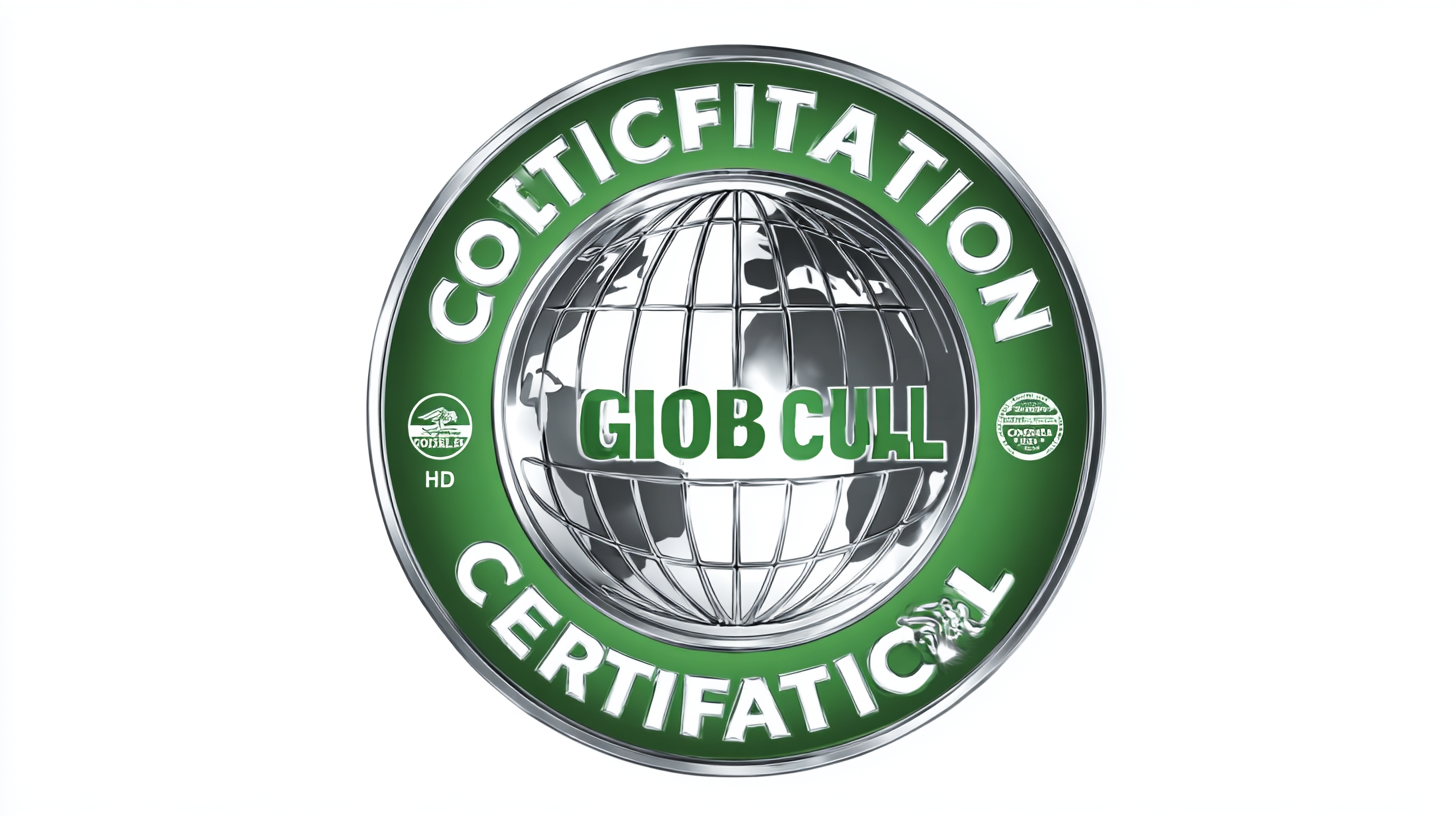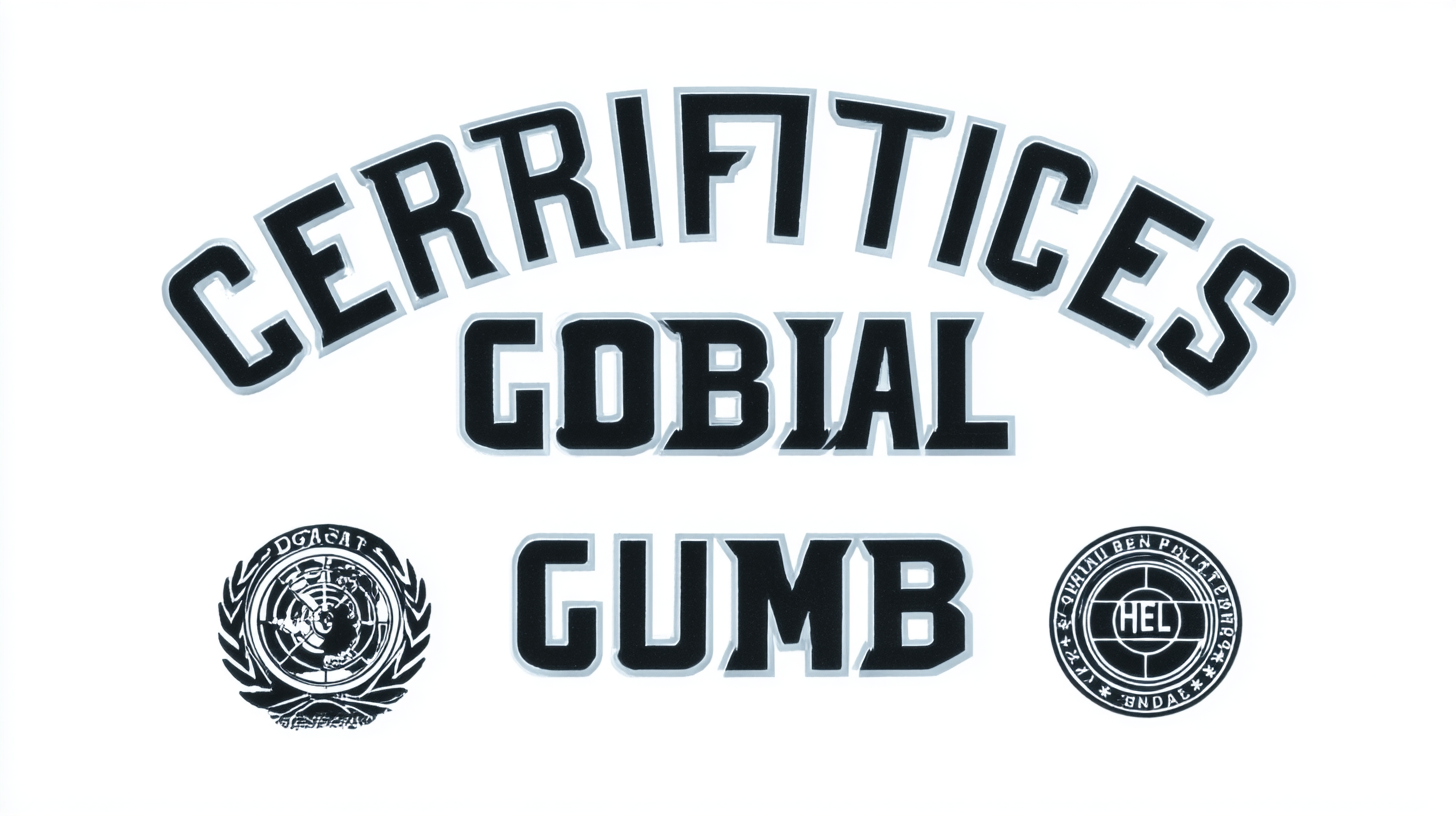Understanding Global Trade Certifications for the Best Aluminium Flagpole Market
Understanding the nuances of global trade certifications is crucial for navigating the ever-evolving aluminium flagpole market. As more consumers seek high-quality, sustainable products, manufacturers must comply with a range of standards that ensure both safety and environmental responsibility. This blog will delve into the types of certifications that are essential for producing aluminium flagpoles, highlighting the challenges and problems associated with each. With the increasing importance of regulatory compliance, businesses must not only be aware of the various certifications required in different regions but also the implications of these standards on production processes, cost, and competitive positioning. By addressing these issues, we aim to provide valuable insights that can help manufacturers and retailers make informed decisions in the dynamic landscape of the aluminium flagpole market.

Global Trade Certifications: An Overview for Aluminium Flagpole Manufacturers
When it comes to manufacturing aluminium flagpoles, understanding global trade certifications is essential for ensuring product quality and compliance with international standards. These certifications not only enhance the credibility of manufacturers but also facilitate smoother access to various markets. For aluminium flagpole manufacturers, key certifications such as ISO, CE, and ASTM play a crucial role in establishing trust with customers and partners globally.
Tip: It's important for manufacturers to stay informed about the specific certifications required in their target markets. Research the local regulations and standards to ensure compliance, as this can help avoid penalties and enhance product acceptance.
Moreover, obtaining the right certifications can lead to increased business opportunities. Manufacturers who meet recognized standards can differentiate themselves in a competitive market. Certifications often serve as a marketing tool as well, signaling to potential customers that the product is of high quality and adheres to safety regulations.
Tip: Engage with certification bodies and industry groups to receive updates on evolving standards. Building relationships with these entities can provide valuable insights and guidance throughout the certification process.
Key Industry Standards Impacting the Aluminium Flagpole Market
 In the rapidly evolving aluminium flagpole market, adhering to global trade certifications and industry standards is paramount for manufacturers and vendors. Key certifications such as ISO 9001, which focuses on quality management systems, and ISO 14001, emphasizing environmental management, play crucial roles in ensuring product reliability and sustainability. According to a recent report by MarketWatch, the aluminium flagpole market is projected to grow at a CAGR of 6.2% between 2023 and 2030, indicating an increasing demand for certified products that meet both aesthetic and functional requirements.
In the rapidly evolving aluminium flagpole market, adhering to global trade certifications and industry standards is paramount for manufacturers and vendors. Key certifications such as ISO 9001, which focuses on quality management systems, and ISO 14001, emphasizing environmental management, play crucial roles in ensuring product reliability and sustainability. According to a recent report by MarketWatch, the aluminium flagpole market is projected to grow at a CAGR of 6.2% between 2023 and 2030, indicating an increasing demand for certified products that meet both aesthetic and functional requirements.
Furthermore, compliance with ASTM standards, particularly ASTM B221 for aluminium extrusions, is essential for ensuring that flagpoles can withstand various environmental conditions. A report from Grand View Research highlights that the demand for high-strength and corrosion-resistant flagpoles has surged, driven by an increasing emphasis on outdoor visibility and durability. As consumers become more discerning about quality and environmental impacts, manufacturers who prioritize compliance with these standards are likely to enhance their market competitiveness and appeal to a broader clientele.
Understanding the Importance of Compliance in Global Trade Certifications
Compliance with global trade certifications is a critical aspect for businesses in the aluminium flagpole market. These certifications not only ensure that products meet safety and quality standards but also enhance consumer trust and brand reputation. In an increasingly competitive global marketplace, adhering to certification requirements can be a significant differentiator for manufacturers aiming to capture a larger market share.
Tips to ensure compliance include staying informed about the latest regulations and standards relevant to aluminium products. Regular training for employees involved in quality control can help maintain high standards throughout the production process. Additionally, collaborating with certification bodies can provide valuable insights and streamline the compliance process.
Moreover, businesses should invest in robust documentation practices. Keeping detailed records of materials, manufacturing processes, and testing results can simplify the certification process and lead to quicker approvals. Engaging with experienced consultants can also help navigate complex certification landscapes, ensuring that all necessary requirements are met effectively and efficiently. By prioritizing compliance, companies can not only mitigate risks but also seize new opportunities in the global market.

Navigating Certification Processes: Steps for Aluminium Flagpole Producers
Navigating the certification processes for Aluminium Flagpole producers involves a comprehensive understanding of both local and international standards. The growing emphasis on sustainability, particularly with the rise of low-carbon aluminium, has prompted manufacturers to align their products with environmental regulations. According to a recent report, the global market for green aluminium is projected to reach USD 98 billion by 2026, as industries prioritize eco-friendly materials. This shift not only helps in reducing the carbon footprint but also opens up new market opportunities for compliant manufacturers.
Producers of aluminium flagpoles must adopt a meticulous approach to certifications such as ATEX and IEC standards, which are crucial for ensuring safety and environmental compliance. The certification process can be intricate, often requiring detailed documentation and adherence to specific guidelines. As per industry insights, successfully navigating these regulations can significantly enhance a producer's credibility and market presence. Moreover, understanding local laws, such as the Buy America Act, can further bolster a company's standing in federal contracts, impacting the procurement landscape for aluminium products. By engaging in thorough preparation for these certification processes, aluminium flagpole manufacturers can position themselves strategically in the competitive marketplace.
Understanding Global Trade Certifications for Aluminium Flagpole Producers
Future Trends in Aluminium Flagpole Certifications and Market Demands
The aluminium flagpole market is undergoing significant transformations, driven by evolving consumer preferences and the increasing importance of certifications. As sustainability takes center stage, manufacturers are anticipated to adopt more rigorous certification processes that align with environmental standards. This includes using recycled materials and ensuring energy-efficient production methods. Customers are becoming increasingly informed about the eco-impact of their purchases, and certifications like LEED and ISO 14001 are gaining prominence. Companies that emphasize these credentials not only enhance their market credibility but also attract eco-conscious consumers.
Moreover, technological advancements are shaping the future of aluminium flagpole certifications. Automated quality control systems and blockchain technology are being explored to ensure product authenticity and traceability. These innovations not only streamline the certification process but also bolster consumer confidence in the products they are purchasing. As the market demands more transparency and accountability, manufacturers who leverage technology in their certification processes will likely have a competitive edge, positioning themselves as leaders in the sustainable aluminium flagpole landscape.
Understanding Global Trade Certifications for the Best Aluminium Flagpole Market - Future Trends in Aluminium Flagpole Certifications and Market Demands
| Certification Type | Issuing Organization | Region | Market Trend | Impact on Demand |
|---|---|---|---|---|
| ISO 9001 | International Organization for Standardization | Global | Increased Quality Control | Higher demand for certified products |
| CE Marking | European Union | Europe | Regulatory Compliance | Increased sales in EU markets |
| RoHS Compliance | European Union | Europe | Environmental Awareness | Growing demand for eco-friendly products |
| ASTM Standards | American Society for Testing and Materials | North America | Quality and Safety Improvement | Increased market share for compliant products |
| UL Certification | Underwriters Laboratories | North America | Safety Standards | Higher consumer trust and product reliability |
